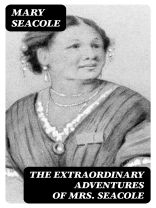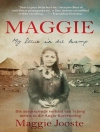In her compelling memoir, ‘The Extraordinary Adventures of Mrs. Seacole, ‘ Mary Seacole recounts her extraordinary life as a British-Jamaican nurse and businesswoman during the Crimean War. Through vivid and engaging prose, Seacole delivers a rich tapestry of her experiences, showcasing her tireless commitment to alleviating suffering on the battlefield. The book is characterized by a direct, conversational style that invites readers into her world, reflecting the oral traditions of storytelling prominent in her Jamaican heritage. Set against the backdrop of colonialism and the burgeoning field of nursing, Seacole’s narrative challenges contemporary notions of heroism and undermines the racialized perspectives of her time, offering a fresh and often overlooked perspective on the war. Mary Seacole’s background as a mixed-race woman raised in Jamaica profoundly shaped her resilience and empathy. As the daughter of a Jamaican mother and a Scottish father, she navigated the complexities of identity and race, which fueled her desire to serve those in need. Her experiences as a healer and a business owner in the Caribbean equipped her with skills that were invaluable during the Crimean War, where she became known as a remarkable figure providing care to wounded soldiers. Readers will find ‘The Extraordinary Adventures of Mrs. Seacole’ an inspiring and thought-provoking account that not only highlights the contributions of women and marginalized figures in history but also serves as a powerful testament to the human spirit in times of adversity. Seacole’s resilience and courage make this memoir a must-read for those interested in nursing history, women’s studies, and colonial narratives.
عن المؤلف
Mary Seacole (1805–1881) was an intrepid Jamaican-born woman whose autobiography, ‘The Extraordinary Adventures of Mrs. Seacole in Many Lands’ (1857), provides a compelling account of her life as a healer, entrepreneur, and traveler. In an era when racial prejudices and gender norms constrained the opportunities for women of color, Seacole’s narrative emerges as a testament to her tenacity and compassion. Trained in traditional medicine by her mother, who ran a boarding house in Kingston for invalid soldiers, Seacole combined Creole healing practices with knowledge gleaned from European medical texts (Robinson, 2005). In her book, she documents her experiences providing care during outbreaks of cholera and yellow fever in the Caribbean and Central America before famously establishing the British Hotel near Balaclava during the Crimean War to aid wounded soldiers (Salih, 2004).
While not as widely recognized as her contemporary, Florence Nightingale, Seacole’s contributions to nursing are now celebrated for challenging racial barriers and expanding the role of women in the medical field (Streets, 2005). Her entrepreneurial spirit and compassionate approach to care left an indelible impact on the history of nursing. Seacole’s writings not only provide insights into the complexities of the Victorian period but also serve as a pioneering example of travel literature and memoir from a Black woman’s perspective. Her literary style combines vivacious personal anecdotes with astute sociopolitical observations, creating a narrative rich in historical and emotional depth (Ramdin, 2005).












